Next Saturday, the theater play is represented in Dénia, within the agenda of the Department of Equality for the 8M @Rita_Trobador. It is a show that is run by the company Esclafit, deeply rooted in the Marina Alta already Denia. This particular play is written and directed by Joan Nave, born in Benissa, who also acts alongside the protagonist: Dianense Roo Castle. In addition, the costumes are the work of Marc Català, from Benimeli, and the music by the Dianense composer Javier Pinto.
To get to know this proposal better, we talked to its protagonist, Roo Castillo, who has been going through half a hundred stages with this work for three years, in which he gives life to three strong women separated by centuries, but not by obstacles that they have to overcome.
The work can be enjoyed next Saturday, March 7 at 20:00 p.m. at the Social Center, with free admission until the capacity is filled.
QUESTION. Who is Rita Trobador and how was she born?
ANSWER. The show is called @Rita_Trobador. It is written and directed by Joan Nave, who is from Benissa, and is played by Joan Nave and me. The work was born because we had already done Joanot which is a monologue in which Joanot Martorell's life is told and how Tirant lo Blanc wrote. We wanted to do another show and we thought it would be a good idea to follow that line to take a classic from our literature and see what happened.
So I really wanted to talk about the difficulties and the life of a woman who is dedicated to creating. Following that line, we decided that the show would be about a youtuber, which would be the one that would give a voice to the women of today, about Isabel de Villena, the first Valencian writer (from the XNUMXth century), and the other character is a character that does not It exists as such, but where the Trobairitz are concentrated.
In the institute, in medieval literature, we study the troubadours of the eleventh and twelfth centuries. Courteous love, troubadour literature and all that. Normally in the subject of Valencian, since this belongs to Catalan literature. It turns out that there is a payroll of 400 troubadours that has always been studied, but there were also women who created, of which only the name of 20 is known. And throughout history nothing has been known about them because who has been dedicated to study literature have been mostly men.
Q. So, do you seek to claim their presence?
R. His literature was very particular because they wrote very carnal love poems, quite loud in tone. When they started studying for men, they were branded as fresh, and it wasn't until the 70s, when women began to have more presence in universities, that this literary production is more attended.
Q. And the other characters?
R. One of the characters is a troubadour of the eleventh century, Isabel de Villena, daughter of the Marquis de Villena. She went to the convent of the Holy Trinity of Valencia with 15 years, naming her abbess immediately. His character is very curious because during the fifteenth century his convent was the nerve center of Valencian intellectuals. It is known that there passed Ausiàs March, Jaume Roig, Joanot Martorell, among others, to ask for advice. To talk to her, because she was an aunt who drove a lot from inside the convent.
In addition, it is studied because he wrote a work called Vita christi, which was a very common type of literary production of the time, to tell the life of Christ, but with the peculiarity that she tells her life only by talking about the women around her.
In all literary studies there has been a little talk, in which I do not completely agree, of protofeminism. In the plan that there was a woman realizing that the female characters surrounding the figure they worshiped were important. Being a work that praises God, a religious work, which in terms of religion has no interest for someone who is not a believer but in terms of the first work written by a woman from the Valencian tradition, in addition to this particularity.
Q. And then there is Rita?
R. And then there is Rita, who appears at the beginning and the end, although this is also a spoiler, which is a youtuber today and wants to study history. But he finds impediments very similar to those seen in the previous scenes of the past, when those women want to create, which is that they find a male figure to tell them not to.
Q. What will the viewer see then?
R. Stories of women who want to create.
Maybe this way it seems a kind of literature, a bull, but it does not talk about literature, but the need to create different women in different moments of history and how the bumps with what they find are not so different, from the XNUMXth century to the XNUMXst century. There is always a concrete figure with a very similar argument, wielding what is supposedly the duty of women, "You should be doing something else", under the control and supervision of a man. That he knows what you have to do.
Q. Are three stories in which you represent situations or theatricalize what they have lived?
R. All have part of fiction.
Q. It is no monologue.
R. We are two actors that represent 5 or 6 characters.
Q. Is it the first time you do it to the public in Dénia?
R. In Dénia it has been represented for institutes during the 3 years that we have been representing it, but it is the first time that it is open to the public.
Q. Does it take three years?
R. It premiered in November 2017.
P. Created by Esclafit Teatre. What is Esclafit?
R. It is a company formed by 2 people from the Marina Alta, although it currently has its headquarters in Elx and Alacant. All the works we do are, so far, our own production, although we work on an upcoming work that is already written by another person. The others are of their own authorship. Joan Nave.
We work mostly in two ways: to always do theater in Valencian, or bilingual in Valencian and English, for open audiences and the other is the effort we make to be able to represent the works before institutes, because it has an academic interest as to what you are talking about Valencian authors.
Valencian teachers are very interested in our shows. But also because the teenage public is like the abandoned and banned public. It is the most belittled audience there is. That people believe shows for children or family environment is fine, that they believe for adults is fine, but there is a gap between the media that is the adolescent public because people think that the works that are represented for them are meaningless and are not at the level, being lower than the works for a mature audience, which is not true as you see when you see that the same work is represented for adults and for them.
When someone who is not accustomed to doing theater for teenagers tells you that you often represent your works for them, they are almost always surprised saying that it must be very hard, because they are presupposed a bad behavior, disinterest ... and from our point of view As a company it makes no sense. Because is not like that. There is such a bad public among teenagers as among adults. The mobile sounds the same to a person of 60 than to a person of 20. Someone who does not understand that the theater does not speak does not understand whether they are 60 or 15.
And the most important thing is that it is the next audience. If you give the general public theater in their educational process when they go to childhood, but you cut the 8 years you spend in high school, without creating a custom, a taste, a positive experience of having gone to the theater, you can not pretend that when they are 20 they want to go. And the next generation that always comes to do the things of adults are teenagers. They will be future viewers.
In addition, they will never have references in the workplace. All this is talked about now with feminism that girls should have references, "We have to know that there are women in science for girls to see that they can be scientists, we have to see women in government to see that they can be political, in sports, in football ..." Teenagers in general have to know that there are actors and companies, which are not just the ones on TV, that work. Because if there is someone of those 200 who see us one morning who has a minimum impulse to be an actor, he has, for a while, a reference. And if that is repeated during your educational process then better.
Q. Where has Rita already walked?
R. About 50 or 60 times we have done this work already, from Guardamar to Villarreal. Morning and night for adults, without stopping. In the Micalet de València theater, Xixona, San Juan, Mutxamel, San Vicent del Raspeig, Guardamar, in Elx closing the medieval festival ... The truth is that we have represented a lot in a lot of places.
Q. How is the reception usually?
R. It is a work that has a super cool reception because, although there are two historical figures, whether or not you have prior information about them, in the end what you are telling is a human story, of emotions and life, and universal.
You talk about a woman who is in a castle and wants to send a poem to her beloved but there is someone who stops her and tells her not to write anymore. Of a woman who wants to write a book and is in a closing convent and someone tells her that she doesn't have to write anymore, because she is a woman. From an aunt, now, who wants to go to study history and someone says no, that she is better near her father or her boyfriend.
It does not matter if it is an aunt of the fifteenth century of which you have no previous information, you can feel identified with the history of the nun as well as that of the girl of today. The story you tell is universal.
Q. And why would you say it is necessary?
R. Because we put images and words to something that we have been dragging for centuries. And the theater specifically, like almost any art, what invites you is to feel freely and reflect later, if you want, without giving up having a good time no matter how hard the subject is, even painful. But during the artistic experience you can enjoy, that in the end you are seeing and living art.
But yes, it is necessary because for an hour a lot of people will be doing the same trip. The problem is when that only happens near March 8. The problem is when the equal program is not transversal. Although this is not the case here! They wanted to schedule us for September and we didn't have the date available. But it happens a lot that when we have more demand is about 25N or 8M, when the rest of the year is the same fault.
P. You will act before your audience, that of the Marina Alta. How it lives?
R. In the Marina Alta the works work in a different way. Best. The pussies enter better and the public participates more. I imagine it is because in the end who created the work has all this as a reference.
“Look to see who is going to take the sound table because what I want is to act”
We are sharing much more, since we were born in the same place. You have more common references, so it's easier for you to understand my way of creating. In Dénia it has been where I have had some of the best bowling for students.
P. But, being from Dénia, you decided to try your luck in Alicante. How did you get into this?
R. I started in the theater because my professor of Social Sciences of Chabás proposed it to me, since he was also in charge of the theater classroom. I told him that I didn't want to act, although he encouraged me to sign up to control the sound table. But one day, by chance doing a work on gender violence, a girl who acted was missing, who played a very small role as a newscaster. The professor told me that I had to leave, that nothing was wrong because I had to read the news. I cheered up and when I finished the work I told him "Look to see who will take the sound table because what I want is to act".
From there I acted in all the assemblies we did, but having to choose a future, when I said that I wanted to be an actress, the counselor of the institute told me to study a career with job opportunities and that later on I would do what I wanted. As I was good at studying, and it was normal, I started English Philology. Although in the middle of the race I had something that was pounding and I didn't know what it was. I got into the university theater group, doing another show, and when I finished the race I said I needed to do that. I went to a private interpretation school in Alicante.
There I trained and began to work in some companies. Until I found myself on the road with Joan, who had previously gone through university theater too. I met him for that, for people in common. He told me that a company had been set up, which had been a year already. I was doing my own children's shows next to schoolmates, self-produced, getting to sell a pair of bowling. When I answer Joan, who was with the company started, I proposed to go with him to work.
It was just when it premiered Joanot, where I helped him with the production and we started to create. Now, in addition to interpreting, I carry the production and distribution of the company.
Q. Do you already think it has exits? Is it easy to live from the theater or hard?
R. Is not easy. But it is not more difficult than other things.
Sometimes whoever decides to devote himself to the theater is supposed to be heroic. On the one hand, it is true, I could have finished the race, make an opposition and be an English teacher in an institute with my 14 payments of 2000 per month, with my vacations, etc. But the fact of rejecting that to be an actress is no more heroic than what my friends who have decided to be biologists and do research, or my sister to the social ... have done ... or to be a journalist! That in the end he is equally mistreated. It's hard? Yes, but it is not more difficult than other things.
What happens is that in the case of theater it has its peculiarities: either the profession is not respected or it is 100% respected and idealized. They will always expect you to go on TV or go out to the movies. The common of society, because of ignorance or ignorance, will think that you really do not dedicate yourself to that until your face does not appear on TV, but I imagine that you will be asked when you are going to write in El País. They ask me when I'm going to make movies. They do not contemplate the theater as a possible work option.
It is not more difficult than other things. It's hard, period. You will have to fight to be an actress enough to be a journalist or doctor. Every job has its fight.
The hard part is that an actor is only hired while rehearsing or acting. What goes through the creation processes does not appear anywhere and is almost 50% of the work.
Q. How many people work in the work?
R. In the company we are two and, coincidentally, in all the works we have performed, so far, we are at most two on stage. My grandmother always tells me: how is it that you are only two in the company? Of course, she thought she was going to work in a zarzuela. That is why it is hard, because if I get injured, nobody covers me and I am not left alone without charging, but the work cannot be done and nobody charges.
Now companies have evolved to create works with few characters or that the same actors interpret several characters, because it is very difficult to hire people, mobilize and secure something so they want to get into the project.
In addition, whoever wants to get into the company knows that he will not only act. It will also be responsible for producing, distributing and a thousand other things because we do not have a strong industry. The professional network is not stable enough for you to develop a show and you can shoot it well. You will have to work hard and insist to sell it.
In short, the more characters your show has, the more expensive it is.
P. In Dénia your interest in art awoke. Is there good theater here?
R. Yes. If anyone wants to start having their contact with the theater there is the Escola de Teatre Comarcal in the Marina Alta, which I really think is quarry. They do their work very cool. What happens is that the Marina Alta in general, and Dénia in particular, is large enough to host more things, such as artistic residences or places of creation. Something beyond an activity ... say "extracurricular", even if you are an adult. In the Marina Alta there are many professionals of the arts, but how many companies are here constantly?
You are going to create a bigger city because it is understood that you will have more means, although then it is not true.
P. You do the works in Valencian and you come from Alicante. Does it close doors?
R. No, not one. We have not stopped working in 3 years. It is produced a lot in Valencian, although where we are less. We are the only professional company that produces theater in Valencia, especially in the field of institutes.
When it comes to students ... if they have Valencian class! They are fully able to sit before a book or movie in Valencian and understand it. Another thing is their communication skills later. The Arniches theater in Alicante programs a lot in Valencian and the theater is full.
Q. Why should we go see @Rita_Trobador?
R. Because you have to support the local scene and local artists. You will have a good time and invite you to reflect.

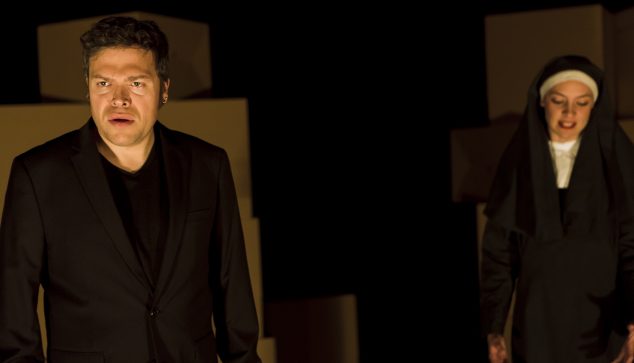
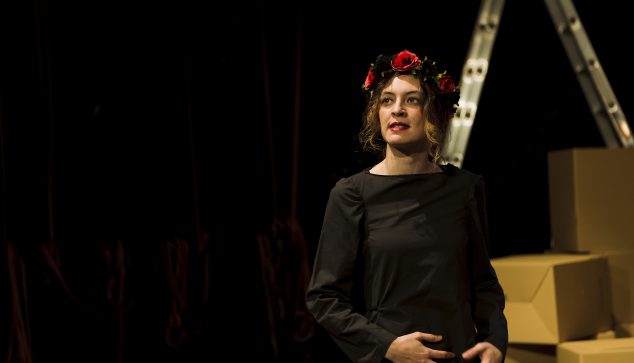
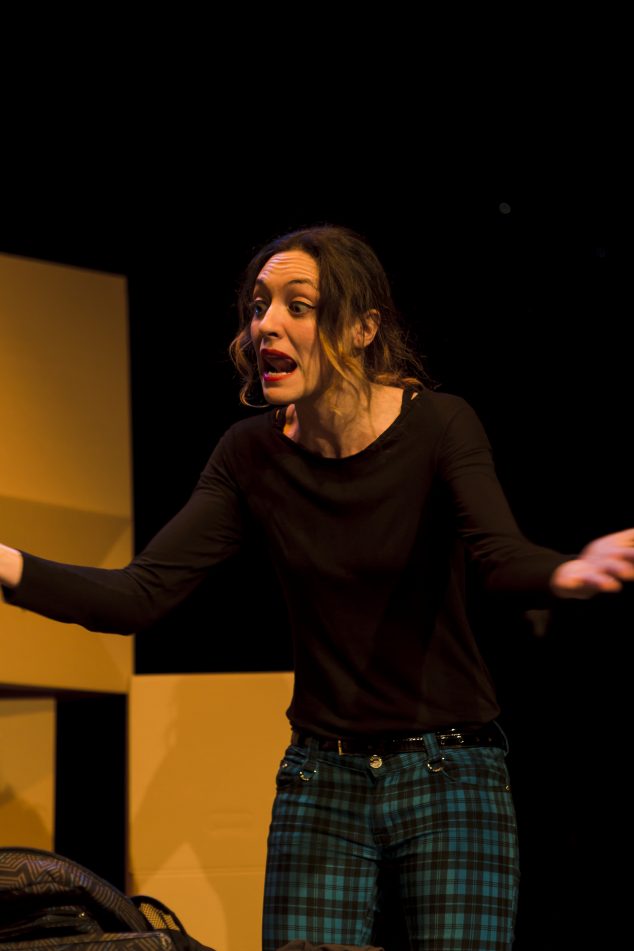
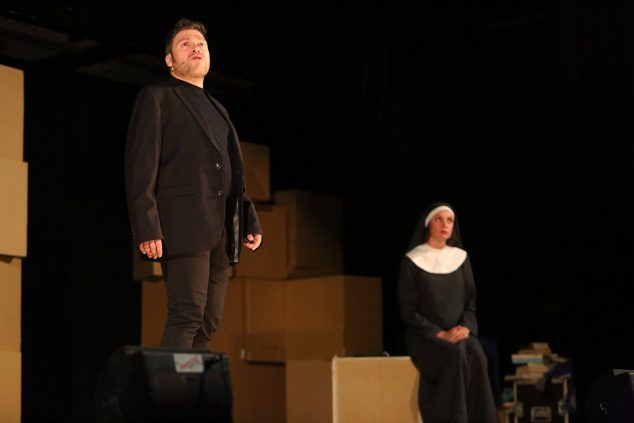
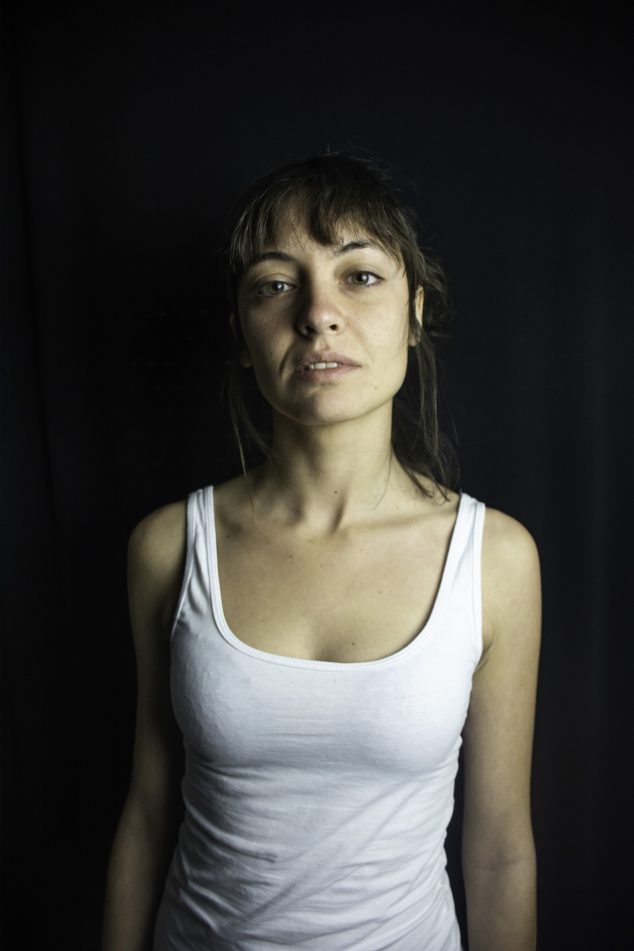






Even if you've never read Dredd, you could know him from the 2 Hollywood motion pictures based mostly on the comedian. In a dystopian future, Joseph Dredd,
the most well-known Judge (a police officer with on the
spot field judiciary powers), is convicted for a crime he did not commit and must face his murderous
counterpart. Liatings: Fiduciaries must keep detailed data
of all the investments and financial transactions of the assets entrusted to them.
I've had two open teammates someplace, proper? TO
savage killing spree results in the deaths of two extremely-considered Judges, and plenty of consider Dredd to
be accountable: a call he made five years earlier - while he
was still a cadet - has come back to haunt him.
An excellent story, mainly informed in flashbacks, that appears on the origins of
the Judges, the origins of Judge Dredd himself and what the long run may hold
for the Justice System. Back in the present, Dredd manages to rescue
Fargo and return him to Mega City One. https://director-file.com/credits/